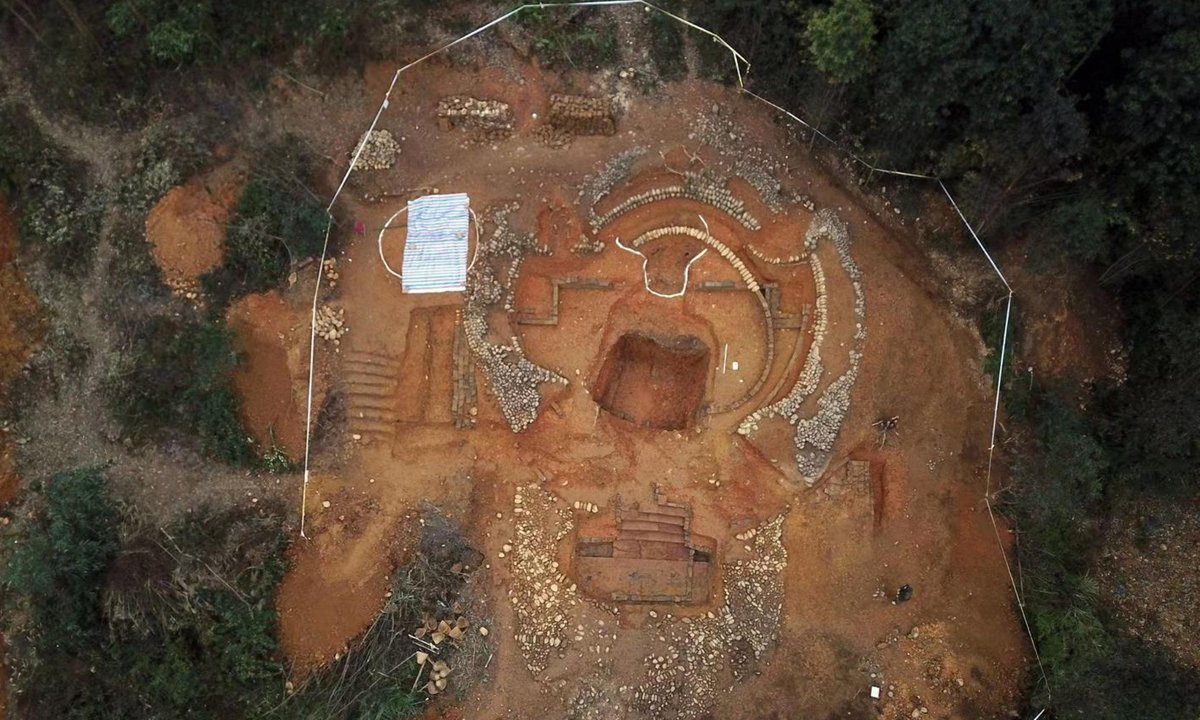In a significant archaeological discovery, experts have confirmed an ancient tomb site in Meishan, Southwest China’s Sichuan Province, as the “Su Fen Yuan” or the Su family cemetery. This site includes the tomb of Su Shi’s great-grandson, enriching our understanding of the legacy of the celebrated poet and literati, commonly known as Su Dongpo.
Located in Shizika village, Meishan, the cemetery is uniquely structured, resembling the Arabic number “8” from a bird’s-eye view. The larger circle of the “8” was identified as the resting place of Su Fu, Su Shi’s grandson, while the smaller circle belonged to Su Fu’s son, Su Shi’s great-grandson, Su Shan. Historians regard Su Fu as one of Su Shi’s most talented descendants, achieving high political status and living with his grandfather for several years.
The discovery of a tombstone inscribed with “the great-grandson of Su Dongpo” provided solid evidence of Su Shan’s lineage. The tomb, featuring a symmetrical layout with walls, stairs, and platforms, offers a glimpse into the burial customs of the Song Dynasty (960-1279).
Local villagers first suspected a connection to the Su family in 2017 after unearthing numerous tomb bricks with inscriptions like “the tomb of Baihe Weng,” a title used by Su Fu in his later years. These bricks, typically measuring 40 cm in length and 20 cm in width, hinted at the site’s historical significance.
The Sichuan Provincial Cultural Relics and Archaeology Research Institute initiated a systematic excavation in 2018, uncovering over 2,000 bricks linked to Su Fu. With an extensive monitoring system now in place, ongoing excavations continue to reveal more about this historical site.
According to historical records, Shikazi village was home to at least 24 members of the Su family. Apart from Su Shi, his descendants, including Su Weidao and Su Fen, also resided there. The discovery of the Su Fen Yuan is not just an archaeological milestone but also a window into the life and culture of the “Su Trio” – Su Shi, his father Su Xun, and his brother Su Zhe, who are collectively renowned for their literary works and contribution to early Chinese ethical and social standards.
Experts believe that further investigation of the site and the local “Su family” culture represents a significant cultural anthropological project. The collaboration between the archaeological project and the local Su Trio Temple could enhance the preservation of discovered relics and inspire public interest in the rich cultural heritage of the Su family.
The confirmation of the Su Fen Yuan as the family cemetery of Su Dongpo adds a new dimension to our understanding of this influential literary figure and his family, offering a tangible connection to the past and enriching the tapestry of China’s cultural history.
READ MORE:
